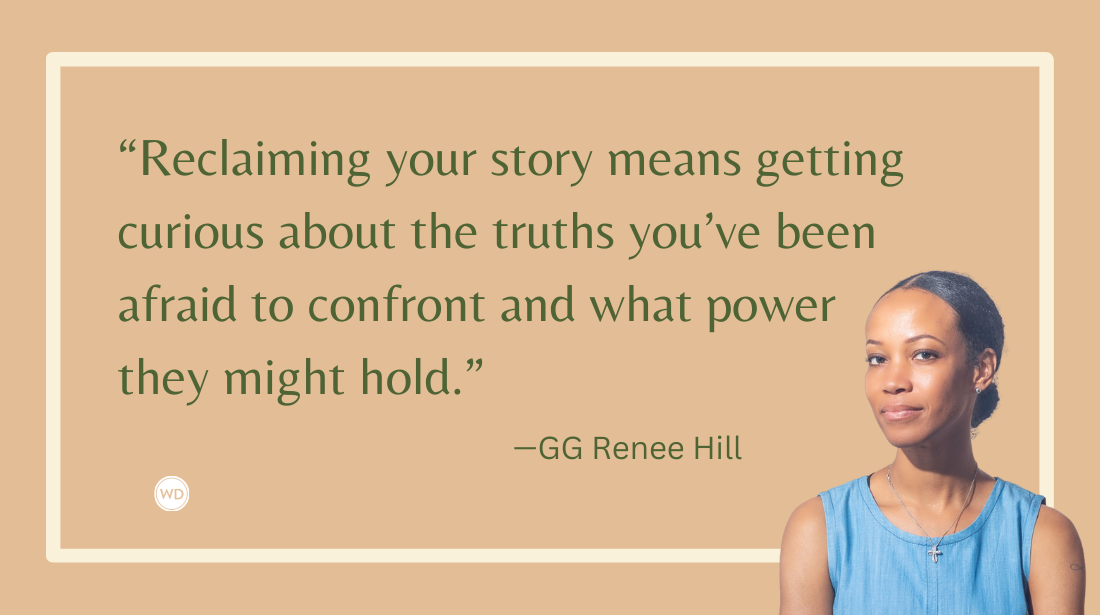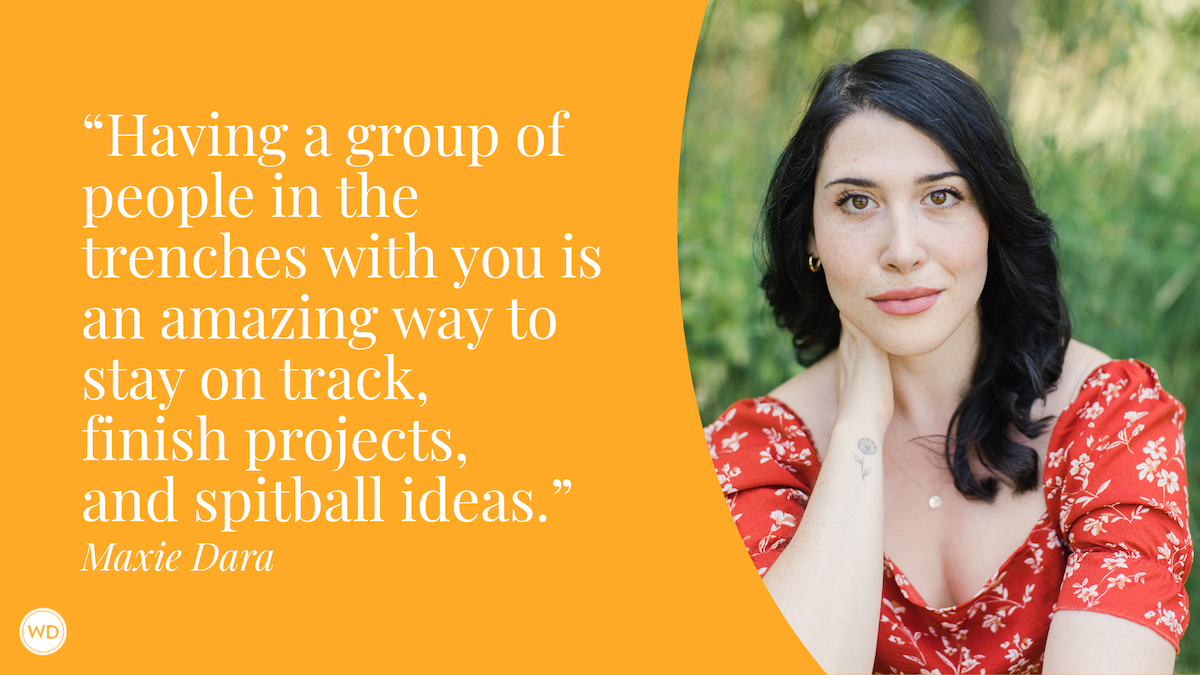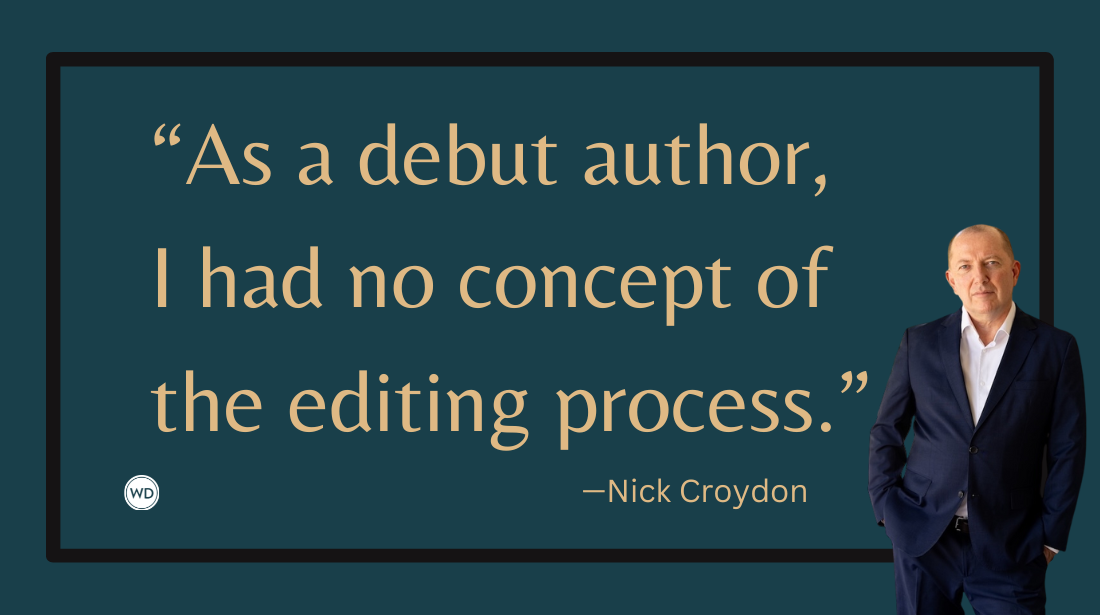The Upside and the Downside of the So-Called “Best Writing Tip Ever”
Dispensing writing tips is risky business. I do it for a living, and I’ve developed a sort of virtual crash helmet to handle incoming flack. While some things about writing…
Dispensing writing tips is risky business. I do it for a living, and I’ve developed a sort of virtual crash helmet to handle incoming flack. While some things about writing are universally true – in the same way that gravity is there even if you don’t believe in gravity – others are more negotiable.
Especially when it comes to tips about the process of writing.
This guest post is by Larry Brooks. Brooks is the author of the new release from Writers Digest Books, Story Fix: Transform Your Novel from Broken to Brilliant. He is the author of two previous WD titles, Story Engineering and Story Physics, as well as six critically-praised novels. Visit his website at www.storyfix.com, named by Writers Digest to our 101 Best Websites for Writers for the last six years.
The thing about process is that, at the end of the day, from a purely qualitative perspective, it doesn’t really matter. Readers don’t care how the writer found and executed the story, whether they did it efficiently as if straight out of a how-to manual, or if they wrote if over a dozen years standing on their head in a dark closet with a legal pad and a Pink Floyd CD at full volume.
The things that make a story great don’t care what you call them or how you finally discover and execute them. They are simply there, like gravity, waiting to either give you wings or cause you to crash and burn.
The debate, then – if indeed there really is one – is about how to get there effectively and efficiently, which in the harsh light truth becomes a matter of personal choice. Because what works for one writer may not work for another.
In other words, what works for Stephen King and Diana Gabaldon and George R.R. Martin and Jonathan Franzen or the loud guy on the online forum may not work for you.
And therein resides the downside risk.
Because if you adopt a particular process, if you believe what you hear simply on the basis of who said it, then you just might be sentencing yourself to years of unnecessary frustration and failure. Or, it may indeed work for you, too, just like it works for the esteemed author who, just possibly, said or implied that theirs is the only process that works.
There is one writing mantra, perhaps the most common sticky note of the walls of writers everywhere, that I truly believe to be the most risky, and potentially toxic writing tip of all. And yes, it does in fact come from the lips of more than one famous writer who can get away with it.
Before I reveal what it is, allow me to first focus on the end of that last paragraph: “… who can get away with it.” Because – especially if you a newer writer – it is highly likely that you can’t get away with it.
Because you don’t yet know what you don’t know. And certainly, you don’t know what that wisdom-dispensing author knows.
Get the Story Physics and Story Engineering bundle now
and add the Larry Brooks' new Story Fix.
Quick story before drawing back the curtain on that.
I was teaching a workshop at a conference for historical novelists. I asked the group what their favorite writing tip of all time was, and began fielding responses that were all over the map, including some really strong morsels of goodness.
One woman was squirming with her hand up, so I called on her. And then, out it came.
“Just write,” she said loud and proud.
I paused. I think she was waiting for me to proclaim her tip the winner. Instead I said, “Actually… this might be, for some of you at least, the worst possible writing advice you could ever hear.”
Stunned silence ensued.
To explain why, two propositions are required.
First, you must accept that a novel is a complex thing, and that the skillsets and tool chest of the enlightened writer stem from a long and varied list. [Like this quote? Click here to Tweet and share it!] If one disagrees, if you think writing a good novel is as organically simple as beginning-middle-end, and that it takes no more knowledge than what you have picked up as reader of novels, then sure, go for it.
Just write. Wing it. See how that works for you.
The other proposition is that writing a novel is just as complex as many other avocations, in that it isn’t something everyone can do successfully without first learning a few things and then practicing until they become internalized.
For example, imagine if you suggested to a young doctor, prior to finishing medical school, that she just cut. Or tell a new lawyer to just talk. Or recommend to your daughter as she preps for your learner’s permit that she just drive.
Play golf? Forget the lessons, just swing. See how long it takes you to make the tour… because becoming a professional in this analogy is precisely the goal of the writers who are reading this.
Dire consequences await for each example. Because each endeavor is important. We’re not talking about a hobby here, this is your dream.
A neurosurgeon who reads my blog recently wrote to confirm that, after immersion into the deep well of storytelling craft, he absolutely agrees that writing a good novel is every bit as complicated and nuanced as performing surgery, where just cut has never been part of the curriculum.
Then again…
… if you are possessed of the full spectrum of writing wisdom – the stuff that those famous authors already understand when suggesting that you just wing it – then the just write idea might fit right in with your process. Storytelling always depends on a good dose of intuitive story sensibility, which in a professional is always informed by craft rather than diffusing and infusing the story with impulsive decisions that are the equivalent of a child’s fingerpainting.
The key differentiation here, the one that can indeed empower the just write intonation and cut years off your learning curve is to realize what the end game of writing is for you. Are you seeking to publish, in any form? Are you in quest of a readership? Are you secretly yearning to make storytelling your day job and see you face in a bookstore window?
Don’t kid yourself. All those noble goals equate to you becoming a professional.
And professionals don’t just write… until they can and should.
Other writing/publishing articles & links for you:
- Here are 10 questions you need to ask your characters.
- How to create an effective synopsis for your novel or memoir.
- Chapter 1 cliches and overused beginnings -- see them all here.
- Here are 7 reasons writing a novel makes you awesome.
- New Agent Alerts: Click here to find agents who are currently seeking writers.
- Download a year's worth of writing prompts right here.
Thanks for visiting The Writer's Dig blog. For more great writing advice, click here.
Brian A. Klems is the editor of this blog, online editor of Writer's Digest and author of the popular gift bookOh Boy, You're Having a Girl: A Dad's Survival Guide to Raising Daughters.
Follow Brian on Twitter: @BrianKlems
Sign up for Brian's free Writer's Digest eNewsletter: WD Newsletter
Brian A. Klems is the former Senior Online Editor of Writer’s Digest, and author of Oh Boy, You’re Having a Girl (Adams Media/Simon & Schuster). Follow him on Twitter @BrianKlems.









